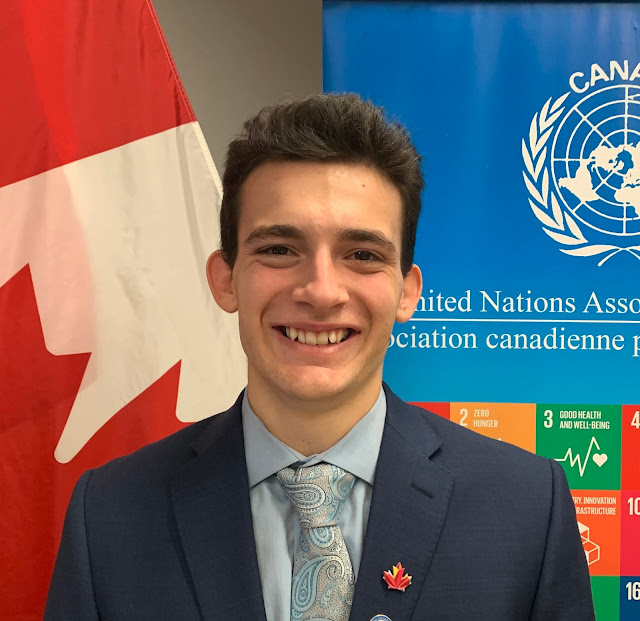Sophie Wang's Second Blog from the Field at UNICEF New York: The UN Girls’ Education Initiative (UNGEI)
Written by Sophie Wang
I am now well past the halfway point
of my six-month internship at the UN Girls’ Education Initiative (UNGEI)
Secretariat in New York. I feel as if I have finally started to grasp how
things actually work at UNGEI, at UNICEF and in New York. While my last blog
was rather personal, I’ll explore my work with UNGEI more in this blog.
The UNGEI Secretariat is a multi
stakeholder partnership working to achieve gender equality in and through
education. While UNGEI is hosted in the Education Section of UNICEF’s
Programmes Division, UNGEI’s funding sources are independent of UNICEF’s, and
UNGEI also does not engage in programming work outside of funding pilot
projects. Rather, UNGEI focuses on promoting evidence building and sharing of
good practices between its global and regional partners, while at the same time
engaging in policy advocacy and pursuing funding opportunities. And all of this
is managed by a small team of only five full-time team members in New York
including our director, Nora Fyles, who works enough for three people!
During my interview with UNGEI, Nora
had warned that if I’m looking for a professional 9-5 experience, UNGEI is not
the right place to do so. Even after starting the internship and creating my
work plan, it was very vague what exactly I would be working on a daily basis.
Yet somehow there are always items to take care of. A part of UNGEI’s work is
convening partners and facilitating information sharing and dialogue between
them. A large part of my work has been assisting in that process and
communicating with our partners as well as regional focal points in South Asia,
Eastern and Southern Africa, Western and Central Africa, and East Asia Pacific
UNICEF offices.
Another exciting aspect of my work
has been the research projects I’ve been involved in. I spent the first two
months working with an UNGEI consultant on a research project funded by UNGEI
and the Malala Fund examining the cost effectiveness of girls’ education
interventions in different countries. While the extensive research conducted
revealed little on the actual cost effectiveness of programme interventions,
the lack of evidence in itself was an important indication that we need more
standardized measures of success as well as a more consolidated database on
girls’ education interventions. More recently, I have been working with another
consultant on building country profiles for the seven countries of focus for
the G7 Gender and the Centre Initiative–Nigeria, Mozambique, Niger, Burkina
Faso, Mali, Mauritania, and Chad.
As for the rest of my time, under the
guidance of the UNICEF Systems, Innovation, Data and Evidence for Results
(SIDER) team, I have been exploring various data analytics tools and ways to
apply a gender lens to such tools to help us understand the extent of equity
and intersectional marginality issues in education.
There is a steep learning curve when
entering any large organization, especially one as geographically and
thematically expansive as UNICEF. I do not yet feel anywhere close to the peak
of that curve yet. However, being immersed within the UNICEF NYHQ office has
allowed me to learn so much more about education programming that I would have
purely from research. Every day, I am adding to my knowledge base and every day
I feel incredibly fortunate and thankful to be here.



Comments
Post a Comment